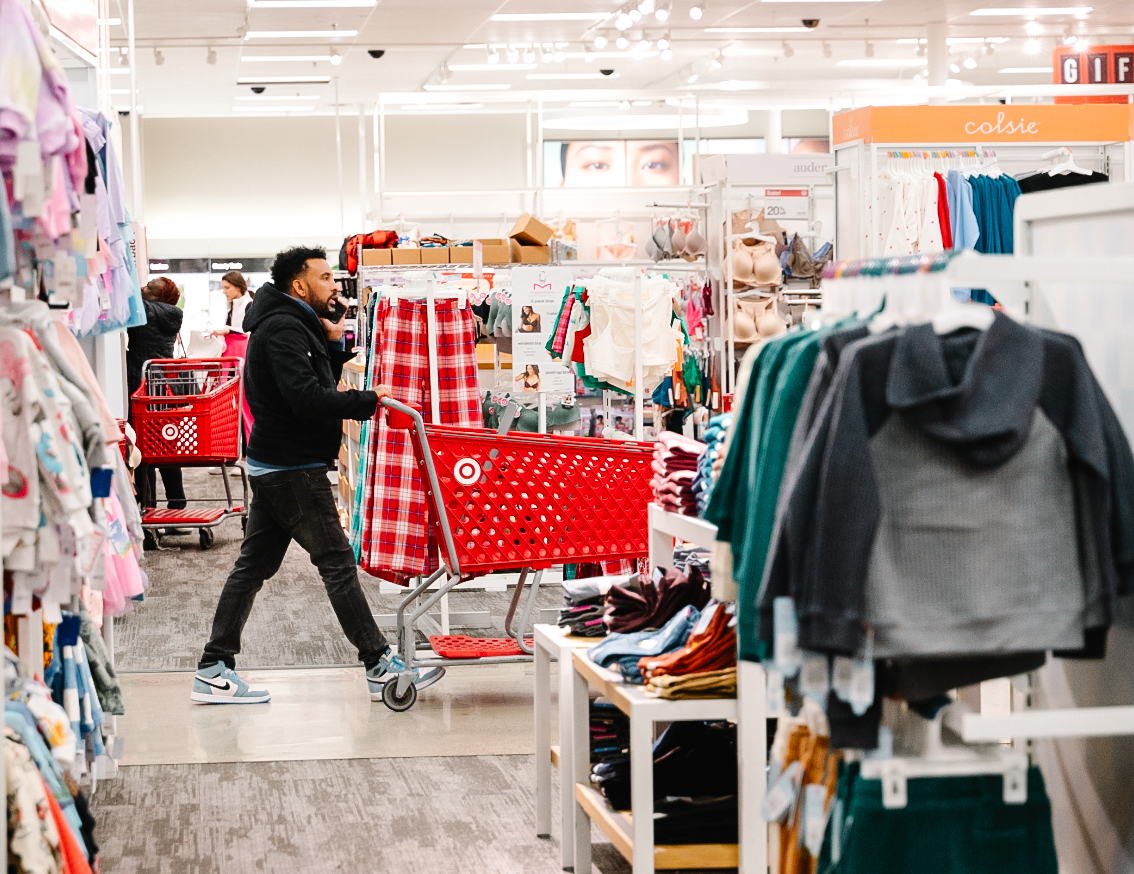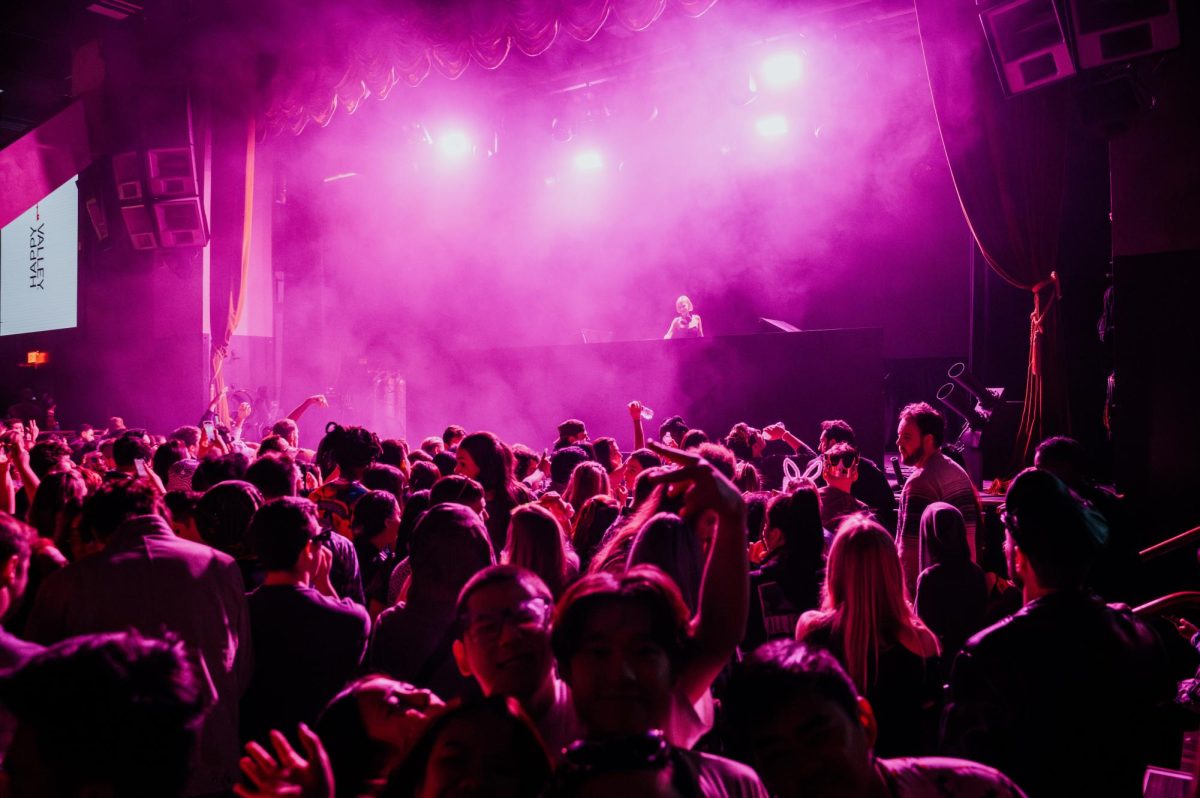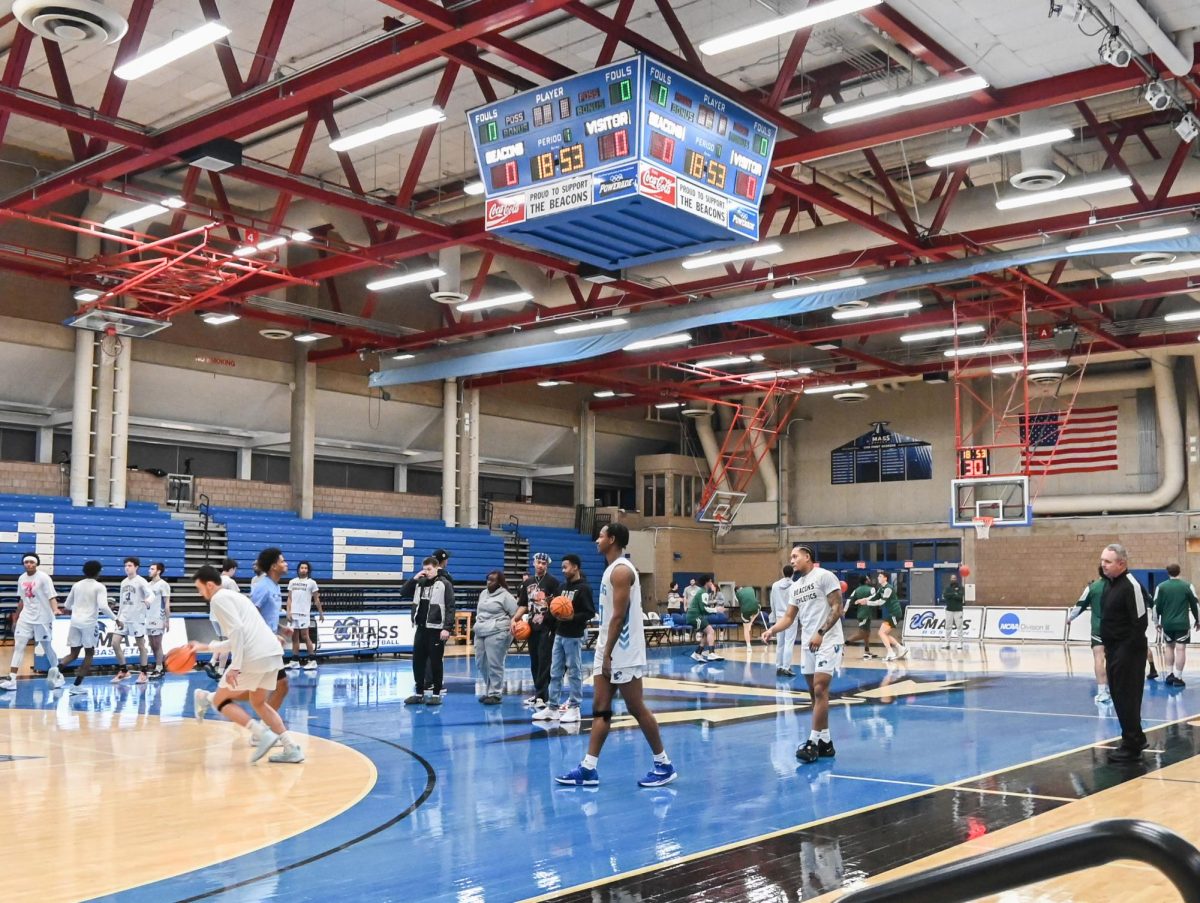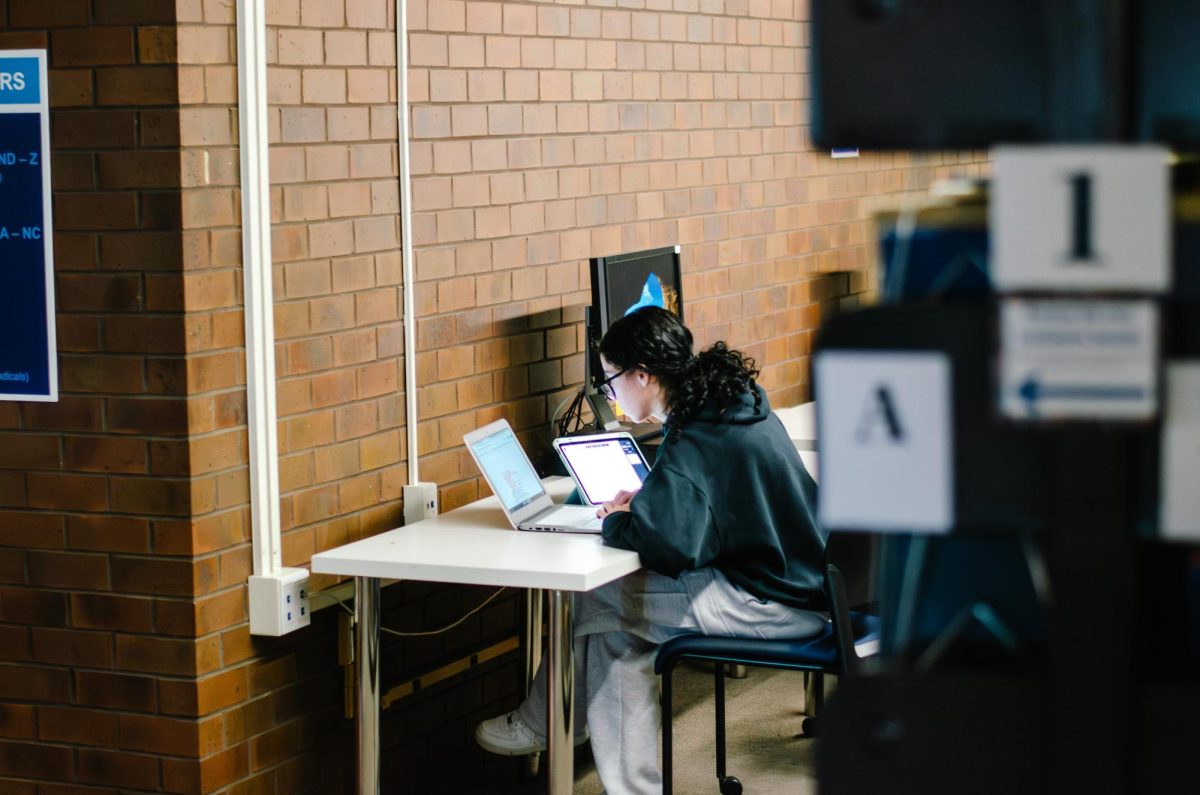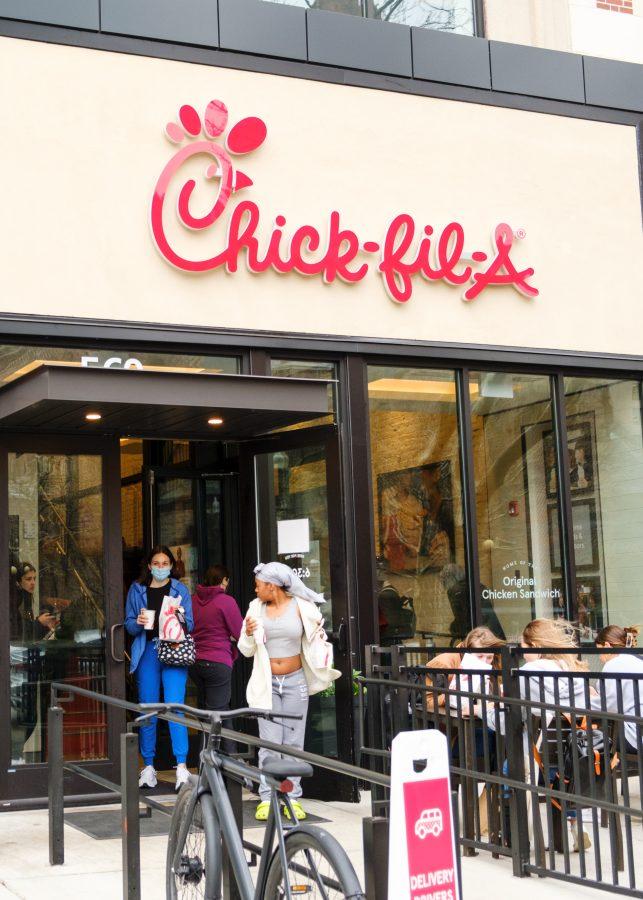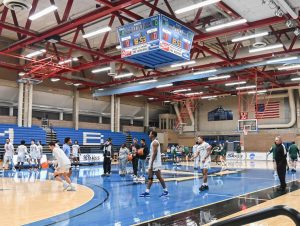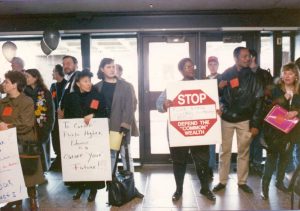Why Chick-Fil-A’s expansion into Massachusetts is harmful
Customers leave the packed Chick-Fil-A on Boylston Street. Photo by Josh Kotler / Mass Media Staff
April 20, 2022
For many New Englanders, much pride comes from the local food. Dunkin’, Friendly’s, seafood from Cape Cod or Maine, and even Ben and Jerry’s have become core parts of the New England diet and a source of pride for many locals. However, for many chains, cities are seen as an easy cash grab, and understandably so. Chain restaurants are reliable and consistent across the entire country—and even the entire world—so for tourists, it’s often much easier to opt for dinner at The Cheesecake Factory or Five Guys, rather than gambling with a local place. However, while these restaurants may be reliable, they may not be good for the city, especially not certain subsections of the population.
Chick-Fil-A is a southern fast food restaurant that specializes in chicken nuggets and sandwiches. Their chicken and waffle fries have become something of a cult favorite amongst those who eat fast food, becoming seen as “superior” and “healthier” fast food than most. Though the company began in the southern half of the United States, it has quickly begun its expansion into the Northeast, with thirteen locations officially opening in Massachusetts—including one on Boylston Street in Boston. However, hidden behind the tender chicken, flavorful sauces and fluffy waffle fries, is a history of transphobia and homophobia.
Much of this bigotry stems from the owner’s religious beliefs—to the point that the chain is closed on Sundays—however, there are plenty of devout Christians that are also accepting of those in the LGBTQ+ community. The owners of Chick-Fil-A have a history of regularly donating to homophobic and transphobic charities, including some that support conversion therapy amongst LGBTQ+ youth. Though they claim to have ceased donations to these organizations, the company has still caused a considerable amount of hurt to the LGBTQ+ community through their actions.
In a state like Massachusetts, where gay marriage was legalized as early as 2004, and conversion therapy was banned as of 2019, the emergence of Chick-Fil-A’s bright red logo and comical ads about eating “mor chikin” can feel like a slap in the face. While Massachusetts’ support of the LGBTQ+ community has not been completely perfect, the state is definitely more progressive and accepting than some of the other states in the United States.
Chick-Fil-A’s emergence into Massachusetts—as well as New England as a whole—can truly be a dual edged sword for those living in the Bay State. For those from the southern parts of the United States, Chick-Fil-A can be a comfortable reminder of home in an unfamiliar place—much like Dunkin’ can be for New Englanders. However, for those in marginalized groups, especially those in the LGBTQ+ community, this can be a clear statement of exclusion and hatred.
By welcoming Chick-Fil-A into many Massachusetts cities like Boston, it serves as a blatant affirmation of “rainbow capitalism”—i.e. targeting those in the LGBTQ+ community with inclusion in order to make money off these individuals, especially during Pride Month—and acceptance in Massachusetts. While Boston may claim to be accepting of those in the LGBTQ+ community and make small strides towards creating a welcoming and safe environment for queer and transgender people, they still welcome companies that have a history of harm towards this community.
Chick-Fil-A’s move into Boston—and Massachusetts as a whole—will bring massive amounts of money to the state, both from locals looking to try the chicken and those who have come to be familiar with it already. This just proves the need for those in power to find what’s profitable; conversion therapy was banned and pro-LGBTQ+ politics were promoted a few months prior to Pride Month, and once that’s passed, they move towards other companies that can make them money. It’s modern-day capitalism, and it’s unsettling, but it’s how the current economic system works.
At the end of the day, while their chicken and fries may be delicious, Chick-Fil-A’s politics and business may not be worth the cost. Though many people—those in the LGBTQ+ community or otherwise—continue to eat at Chick-Fil-A, and the company claims to have changed their politics, their past is still unsavory. It’s up to lawmakers and the public faces of Boston to decide how they want to represent the city going forward, but for the common person, daily choices like avoiding Chick-Fil-A can be done as well to make a statement against the chain. Better chicken most likely exists at family-run businesses, anyway.





























